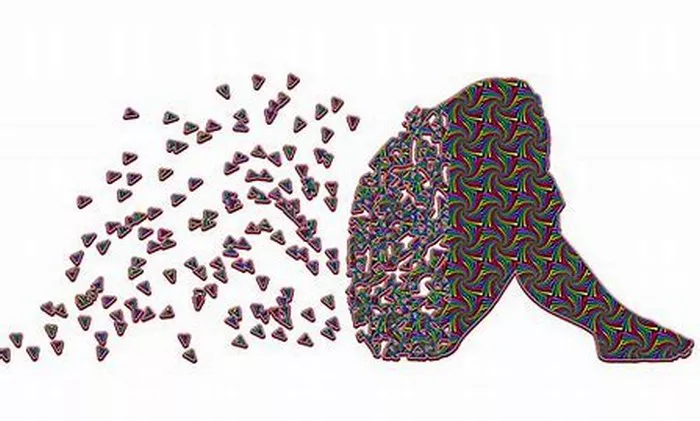Decompensation is a term frequently used in the field of mental health to describe a deterioration in an individual’s mental health and functioning. While commonly associated with conditions such as depression, anxiety, and personality disorders, decompensation can manifest in various mental health conditions and contexts. In this comprehensive article, we delve into the concept of decompensation, its underlying mechanisms, clinical manifestations, and implications for diagnosis, treatment, and prognosis.
Defining Decompensation
Decompensation refers to the inability of an individual to maintain psychological defense mechanisms in the face of stressors or internal conflicts, leading to a breakdown in adaptive functioning. These defense mechanisms, which include mechanisms such as denial, repression, rationalization, and projection, serve to protect the individual from anxiety, distress, and psychological discomfort. However, during periods of heightened stress or when faced with overwhelming challenges, these defenses may become inadequate, resulting in a loss of psychological equilibrium and the emergence of symptoms.
Mechanisms of Decompensation
Several factors contribute to the process of decompensation in mental health. These may include underlying psychological vulnerabilities, such as unresolved trauma, maladaptive coping strategies, personality traits, and genetic predispositions. Additionally, external stressors, such as interpersonal conflicts, financial difficulties, loss of a loved one, or significant life changes, can precipitate decompensation by overwhelming an individual’s coping resources and exacerbating underlying psychological distress.
Clinical Manifestations of Decompensation
The clinical manifestations of decompensation vary depending on the individual’s underlying mental health condition, coping mechanisms, and the nature of the stressors encountered. In depressive disorders, decompensation may manifest as a worsening of depressive symptoms, such as persistent sadness, loss of interest or pleasure, fatigue, changes in appetite or sleep patterns, and suicidal ideation. In anxiety disorders, decompensation may manifest as increased anxiety, panic attacks, avoidance behaviors, and impaired functioning in social or occupational domains.
In personality disorders, decompensation may manifest as a loss of control over impulses, unstable mood states, interpersonal conflicts, and self-destructive behaviors. In psychotic disorders, decompensation may manifest as hallucinations, delusions, disorganized thinking, and impaired reality testing. Regardless of the specific symptoms, decompensation often results in a significant deterioration in the individual’s ability to cope with daily stressors and maintain functional independence.
Diagnosis and Assessment
Diagnosing decompensation in mental health requires a comprehensive assessment of the individual’s mental health history, current symptoms, psychosocial stressors, and functional impairment. Clinicians may use standardized diagnostic criteria, such as those outlined in the Diagnostic and Statistical Manual of Mental Disorders (DSM-5), to identify specific mental health conditions and assess the severity of symptoms. Additionally, clinicians may utilize clinical interviews, self-report measures, and collateral information from family members or caregivers to gather comprehensive information about the individual’s mental health status and functioning.
Treatment Approaches
Treatment approaches for decompensation in mental health vary depending on the underlying condition, severity of symptoms, and individual needs. In general, treatment may involve a combination of psychotherapy, medication, supportive interventions, and psychosocial support services. Psychotherapy, such as cognitive-behavioral therapy (CBT), dialectical behavior therapy (DBT), or psychodynamic therapy, can help individuals gain insight into their thoughts, emotions, and behaviors, develop coping skills, and address underlying psychological conflicts.
Medication, such as antidepressants, anxiolytics, mood stabilizers, or antipsychotics, may be prescribed to alleviate symptoms and stabilize mood. Supportive interventions, such as case management, supportive counseling, and peer support groups, can provide individuals with practical assistance, emotional support, and social connection. Additionally, addressing psychosocial stressors, improving coping skills, and promoting self-care practices, such as exercise, relaxation techniques, and stress management strategies, can help individuals reduce the risk of decompensation and maintain mental well-being.
Prognosis and Prevention
The prognosis for individuals experiencing decompensation in mental health depends on various factors, including the severity of symptoms, underlying mental health conditions, availability of support systems, and response to treatment. Early identification and intervention are key to improving outcomes and preventing further deterioration. By addressing underlying psychological vulnerabilities, reducing exposure to stressors, and promoting resilience and coping skills, it is possible to mitigate the risk of decompensation and support long-term mental health and well-being.
Conclusion: Implications for Clinical Practice
In conclusion, decompensation is a critical concept in mental health that refers to the deterioration of an individual’s mental health and functioning in response to stressors or internal conflicts. Understanding the mechanisms, clinical manifestations, diagnosis, and treatment of decompensation is essential for clinicians working in mental health settings. By identifying early signs of decompensation, addressing underlying psychological factors, and implementing appropriate interventions, clinicians can help individuals navigate periods of heightened stress and promote resilience, recovery, and well-being.
[inline_related_posts title=”You Might Be Interested In” title_align=”left” style=”list” number=”6″ align=”none” ids=”8698,8694,8690″ by=”categories” orderby=”rand” order=”DESC” hide_thumb=”no” thumb_right=”no” views=”no” date=”yes” grid_columns=”2″ post_type=”” tax=””]































